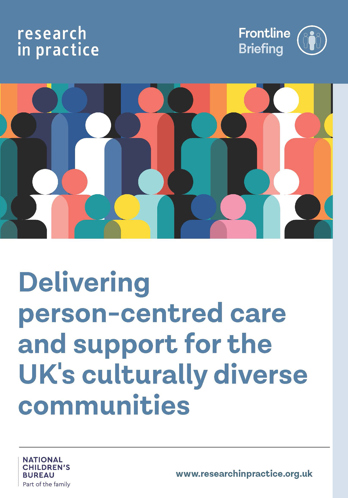Delivering person-centred care for the UK's culturally diverse communities: Frontline Briefing (2024)
Introduction
How can we support more effective person-centred care in communities where cultural differences and intersectionality have an impact on lived experiences of the health and social care system?
This frontline briefing discusses concepts and frameworks for delivering person-centred care and support for the UK's culturally diverse communities. It focuses on the impact of cultural contexts and research evidence that make the case for developing culturally appropriate care.
Professional Standards
PQS:KSS - Person-centred practice | Developing confident and capable social workers | Promoting and supporting critical analysis and decision-making | Values and ethics
CQC - Effective | Caring | Responsive
PCF - Diversity and equality | Critical reflection and analysis | Values and ethics
RCOT - Service users | Communication | Identify needs
This publication is a premium resource
Access the full publication with a one-off purchase or enjoy the benefits of membership.




